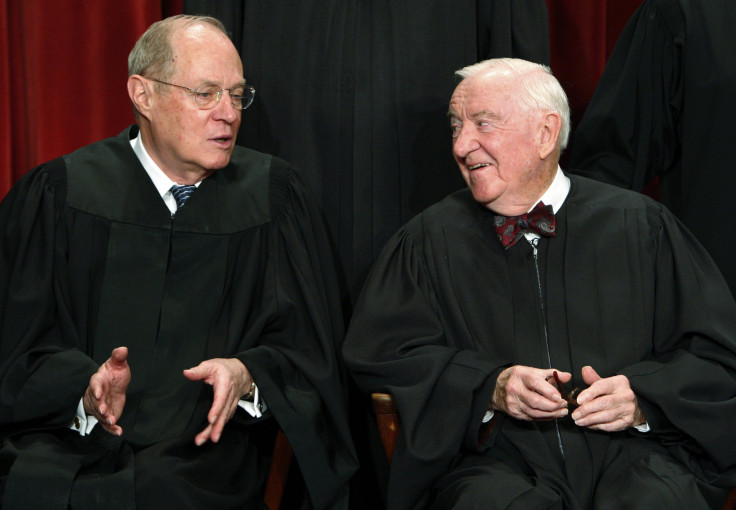'Yes': Former Supreme Court Justice John Paul Stevens Says Marijuana Should Be Legalized

When asked about legalizing marijuana, many folks in the political spotlight will skirt around the issue. Supreme Court Justice John Paul Stevens, 94, is getting a little old for that.
When asked by National Public Radio’s Scott Simon about federal marijuana legalization, Stevens replied with a simple affirmation:
“Yes. I really think that that's another instance of public opinion [that's] changed. And recognize that the distinction between marijuana and alcoholic beverages is really not much of a distinction,” Stevens said. “Alcohol, the prohibition against selling and dispensing alcoholic beverages has I think been generally, there's a general consensus that it was not worth the cost. And I think really in time that will be the general consensus with respect to [marijuana].”
Stevens retired from the Supreme Court in 2010 after serving nearly 35 years.
His support for marijuana legalization is the highest confirmation of support for it in the U.S. outside of President Obama’s somewhat vague affirmation earlier this year that state legalization efforts should move forward. While both may support a form of legalization, there’s a huge distinction to be made between what Stevens and Obama are in support of.
Stevens supports full-on federal legalization. President Obama so far has only told federal departments to work with states that have independently legalized recreational or medical marijuana.
President Obama still has two years of hard governing and politicking ahead of him, so even if he wanted to, he’d have a tough time arguing for full federal legalization just for medical marijuana. That’s if he's for federal legalization laws, and he hasn’t said he is. For now, it looks as if he’ll be leaving it to the states to decide. Stevens, on the other hand, already has four years’ time away from the federal government. At this point, he can say what he wants, regardless of politics.
That also means his support is only symbolic, and not all that surprising. The self-identified conservative had a moderate judicial voting record and would side with the liberal side of the Court if he felt it was correct. He opposes the death penalty, and in a widely debated case, he argued that the Texas State Capitol violated the First Amendment by displaying the Ten Commandments on its grounds.
Stevens argues a number of his stances in a book he released this week titled "Six Amendments: How and Why We Should Change the Constitution." Marijuana legalization isn’t one of them. Some reviews argue that Stevens’ Constitutional reform arguments aren't realistic and don't offer practical means of implementation.
Considering just the clip NPR uploaded of the interview, Stevens doesn't sound ready to argue exactly how marijuana should be legalized. Instead, he just seems to be offering his opinion on the topic. According to one poll, Stevens is right, even folks who oppose legalization think it will eventually happen.
You can hear Stevens’ full interview on NPR's Weekend Edition Saturday this weekend.
© Copyright IBTimes 2024. All rights reserved.






















